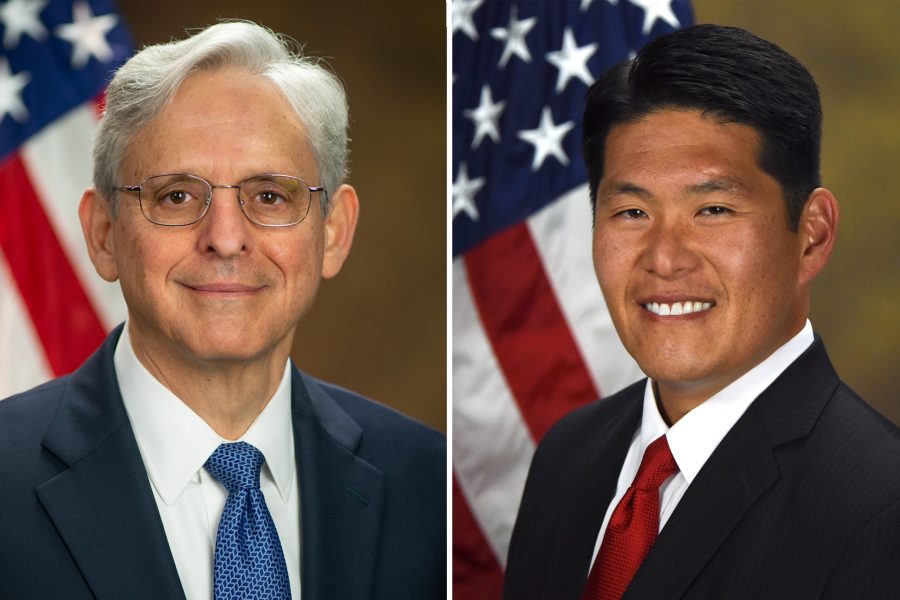Forgetfulness: A Remembrance
The media outlets all took the bait, as Robert Hur and his hatcheteers knew they would.
|
Listen To This Story
|
I have always had a good memory. When I was three or four, I knew all the state capitals — not to mention all the states — as well as the stats on the back of the baseball cards I inadvertently taught myself to read while collecting. My grandfather taught me the state capitals (and how did he know them — this short, kindly man with the thick accent who left school after first grade, who was born here but grew up in Italy?). He would parade me down North Street, where I’d dazzle the neighbors with my uncanny ability to recall exotic place-names like Carson City, Tallahassee, Montpelier, and Baton Rouge.
By third grade, I knew all the countries in the world — except maybe for some of central Africa — and most of their capitals and the country flags; and the US presidents; and all the teams in major league baseball and the NFL; and the gods of Olympus and Norse myth; and which teams played in every Super Bowl, who won, and who the quarterback was.
When our son, the one named after my grandfather, was around that age, and in the heyday of his Dancing With the Stars phase, he knew, heading into the DWTS finale, who all the contestants were, celebrities and pro dancers both, and which dance they did in which week, and how each of the judges scored them. When he casually rattled this off, as I checked his answers on Wikipedia, I was as gobsmacked as the Italian ladies across the street were with me.
Like an aging pitcher losing his fastball, I have lost some of my recall. The Trivial Pursuit answers don’t come as quickly as they used to. When I took the test to go on Jeopardy! a few years ago — which my mom had pushed me to do for years — I failed because I couldn’t remember who wrote Pride & Prejudice. And, like, I know who wrote Pride & Prejudice. I majored in English literature, ffs! But as the seconds ticked away, the author’s name hid itself under the blankets of my mind.
And that was before COVID-19. One of the symptoms of the coronavirus is “brain fog,” which sounds a lot like “brain cloud,” which was the made-up illness Tom Hanks was diagnosed with in Joe Versus the Volcano. Only, brain fog is real. For me, I’d try to summon some fact, and it just… wouldn’t… come. I’d have to wait — sometimes a full minute, sometimes longer — until, like a can of Pepsi stuck in a soda machine I was desperately shaking, the nugget of information would finally loose itself from the gray vault of my mind. Thankfully, brain fog was accompanied by another peculiar symptom: contentedness. I would laugh inwardly at my feeble inability to remember the name of the actor in the show we were just watching. It amused me. I may as well have been stoned.
I don’t know the state capitals anymore, not like I did four-plus decades ago. This morning, in typing up the first paragraph of this piece, I was reasonably sure that Springfield was the capital of Missouri, and then wondered what the capital of Illinois was if not Springfield, and I had to use Google to confirm that Springfield was Illinois, and Jefferson City was Missouri. (I also thought, just now, that Mizzou was in Springfield, MO; but no, it’s in Columbia, and I’ve been there.)
Even without the COVID-induced fog, it makes sense that my overtaxed brain would put this useless information in cold storage. One of the many casualties of the Age of Trump is memory. Steve Bannon’s “firehose of shit” is real. For eight full years now, I have been covering this unpleasant beat, tracking these soulless traitors, and it requires extreme vigilance and a knack for processing disparate bits of information, and both of those things eat up my brain’s RAM (and ROM).
Sometimes I feel like an engine that’s been revved up so that the needle is in the red part of… whatever that gauge that isn’t the odometer is called… and it’s been going like that for eight years. This is why it’s hard for me to watch a new show or read a new novel. My brain is like, “No, we will not be learning any new character names, fuck off.”

I mention this not to complain, or to evoke sympathy, but because memory is in the news of late — and, thanks to Attorney General Merrick Garland’s cowardice and our suck-ass mainstream media, threatens to be a campaign issue.
Garland appointed a special counsel to investigate Joe Biden’s alleged mishandling of classified documents — that was justifiable; he named to the post one Robert Hur, a reactionary, Biden-hating Republican — that was beyond the pale. We are all afraid that Trump will win the election and end American democracy; our hapless AG is afraid of the Wall Street Journal editorial page accusing him of being too partisan.
Not only did he give Hur the job, he allowed the gratuitous editorializing, the shit-talking, to remain in the final document. What a sad failure Garland is! How tone-deaf. How ill-equipped for the moment.
As for the mainstream media, they are positively tumescent over this excuse to question Biden’s mental competency — even as his rival, the bloated rapist with 91 felony counts against him, confuses Biden with Barack Obama, and Nikki Haley with Nancy Pelosi, and spews nonsensical shit on the regular like the dementia patient he is. The New York Times, which was once a good paper, couldn’t wait to But-Her-Emails the president.
The media outlets all took the bait, as Hur and his hatcheteers knew they would. They have learned nothing — nothing! — these past eight years. (I’d bang my head against the wall, but that would make my recall even worse.)
Rain at Night
American poet Hart Crane did not live long enough to have these kinds of memory issues. If he forgot stuff, it was from blacking out while drunk. He was as out as a gay man born in 1899 could be without running afoul of the law, and he had many lovers, and he hated himself for it. Also, he fancied himself a poetical rival to T.S. Eliot: Crane’s long poem, “The Bridge,” was a response to Eliot’s “The Waste Land,” an ambitious attempt to contain multitudes, as Eliot’s poem did, but in a more hopeful way.
“The Bridge” makes for interesting reading, especially if you’ve lived in New York City, but it is not the canonical magnum opus Crane wanted it to be. Hart Crane was a fine poet, but not in Eliot’s stratum, and that realization must have weighed on him.
At 32, Crane took up with the ex-wife of his friend, the poet and critic Malcolm Cowley, hoping this new hetero relationship would work like Speaker Mike Johnson’s (R-LA) wife’s gay conversion therapy treatments. It did not.
On a steamship from Veracruz to New York with his new love interest, Crane got socked in the jaw for hitting on one of the strapping young crew members. This humiliation proved too much to bear. He got hammered drunk, climbed up on the deck, shouted, “Goodbye, everybody!” and threw himself into the sea, some 300 miles from Havana. It was April 27, 1932. His body was never recovered. Reading of this tragedy yesterday, all I could think of, ironically, was the line from “The Waste Land”: Fear death by water.
In happier times, Crane wrote a poem called “Forgetfulness,” which seems appropriate this week:
Forgetfulness is like a song
That, freed from beat and measure, wanders.
Forgetfulness is like a bird whose wings are reconciled.
Outspread and motionless —
A bird that coasts the wind unwearyingly.
Forgetfulness is rain at night,
Or an old house in a forest — or a child.
Forgetfulness is white — white as a blasted tree,
And it may stun the Sybil into prophecy,
Or bury the Gods.
I can remember much forgetfulness.
A bird coasting the wind, waiting for some external force to deliver it where it wants to go: That is exactly how brain fog feels. What I like about this poem, too, is that Crane is ambivalent about forgetfulness. It’s not inherently bad to not remember. Sometimes we forget because our brains are tired, but sometimes we forget in order to protect ourselves from unpleasant truths. (Some dance to remember / Some dance to forget.)
The Presidency Is not Jeopardy!
Will forgetfulness bury Joe Biden? The president is almost exactly 30 years older than I am. Here I sit, at 51, in the comfortable office of my comfortable house, having some difficulty managing all of my jobs, all of my creative projects, all of the myriad relationships I want to maintain — my family, my work friends, my literary friends, my old friends, my new friends, people in the New Paltz world, people I’ve known for years on Twitter, the wonderful Five 8 community, the wonderful community here at my Prevail substack. Always, I want to spend more time than I have. I feel neglectful. But I am trying to make peace with this negligence, because that’s life.
Now imagine Joe Biden, who has three decades on me. Imagine all the people he’s met in his long, important life: his family, his friends, his constituents, his former colleagues in the Senate, everyone in the Obama White House, world leaders past and present, and all the humans he has to manage now as commander in chief. So much information in that brain of his!
Is Joe’s occasional inability to immediately summon some piece of data a sign of mental incompetence? Of creeping dementia? Or is it just a function of being alive for 80 years — and in the thick of everything for 50 of those years? I’d argue that it’d be weirder if he didn’t have occasional memory lapses. Who cares if it takes him a few more seconds to remember something? Does it really matter?
That guy Fox News sends to cover the White House, Peter Doocy — the smug nepo baby regularly owned by Jen Psaki — whom Biden humiliated this week? The old adage applies here: Joe Biden has forgotten more than Peter Doocy knows.
With age comes wisdom — another old adage, and one our media seems to have forgotten. These days, wisdom is in short supply.
Hur’s report is — to use the delightful phrase my friend Zarina Zabrisky coined — a non-hamburger. I doubt it has legs. After all, we’re still talking about the Super Bowl. There is much more news to break before the election. If history is a guide, no one will remember this dumber-than-usual news cycle when November rolls around. That will work to Biden’s advantage.
The United States is a nation of amnesiacs. Nothing is as American as forgetting.
Adapted, with permission, from Prevail, Greg Olear’s substack.





